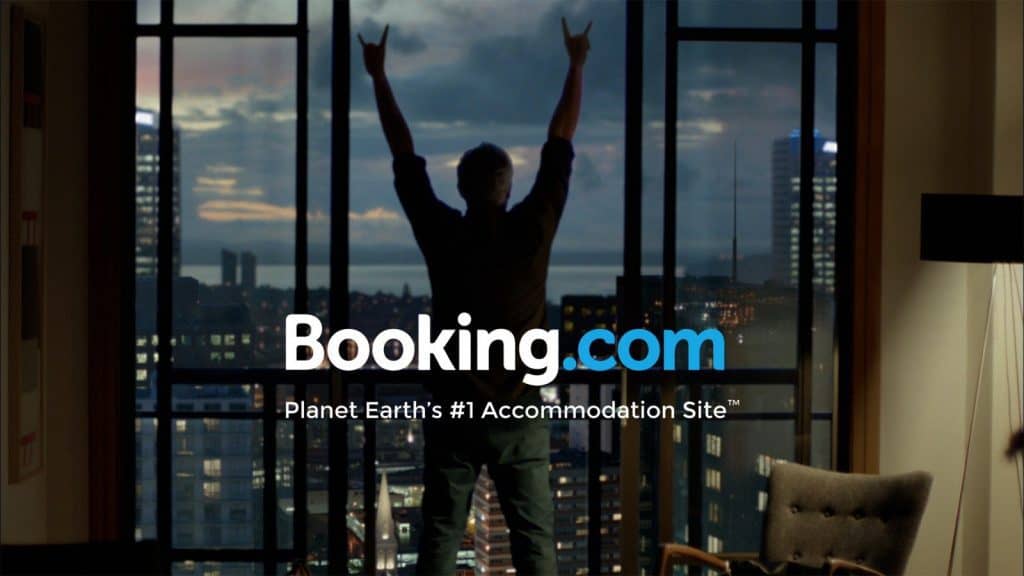For years, I had been booking my accommodation strictly via hostel websites (directly via links I found on Google maps and via the portals hostelbookers, hostelworld, and Hostelling International’s own hihostels.com). Then, I was approached by Booking.com to write about their new campaign. Not wanting to advertise something I didn’t know I decided to test-drive the platform.
I placed my first booking with them, 4 nights at the Ostello Portovenere in August 2015, and ever since I have used it for about 95% of my bookings in Europe, the Middle East, and Asia.
Here are ten things that I have learned along the way and you might not have known about Booking.com*:
Booking.com offers everything from cheap-cheap-cheap hostels to small hotels to B’n’Bs to holiday rentals to exclusive 4-and-more-star hotels. That makes it easy to spot good deals regardless of which travel style you prefer and which budget you have available.
2. Easiest to use
Booking.com is one of the few providers that lets me actually see all necessary information at once, in the results list. If I search a place for 1 person for 5 nights I get the full price I have to pay displayed and can sort/filter by that full price. There is no need to check whether it’s actually the price for a double divided by two (hello, Hostelworld!) or the price per room but just for 1 night (hello, trivago!).
The overview also shows me cancellation conditions and included freebies such as breakfast or WiFi. After that, I can sort by different criteria (price, Booking.com featured, distance to the city center,…), filter results (price, stars, user rating, part of town,…) and save favorites in different folders to easily find them again later.
3. Original reviews and rating
All reviews and ratings on the site have been left by people who booked the accommodation via the site. And because they are following up quite rigorously there is plenty of feedback, both positive and negative, which makes it a breeze to find the kind of accommodation I want.
4. Free city guides with offline map
Ok, this is not Booking.com’s strong point as the suggested sights in the guides are so basic, any Google search would reveal them. However, there are tips by locals (solicited from platform users) and, if you use the app, detailed offline maps which allow for GPS localization.
5. Free cancellation, pay later
Many of even the lowest rates come with the option to cancel for free until up to one day before arrival and only very rarely have I had to pay anything upon booking. You do, however, need to provide credit card details to secure a booking, even if you plan to pay by other means.
6. Members only – sign up & save
If you think the rates aren’t low enough, uncover tons of discounts simply by signing up and logging in. That’s how most of the platforms do it and Booking.com is no exception.
7. Download app power
In addition to being able to download your city guides, some additional discounts are offered only if you search via the app. Plus: you have all your bookings with you, can check details and manage them on the go.
8. Best Price Guarantee
Like most of the other providers, Booking.com offers to match any lower price found elsewhere online for their accommodations. The catch is: the conditions have to be exactly the same (room category, dates, services) and member prices that other platforms offer don’t count.
What that means, however, is that accommodation can’t be offered for less on the accommodation’s website itself, hence preventing the hotelier from finding clients on Booking.com and then drawing them to their own site to save on the Booking.com fee.
9. Fees on the house
Speaking of which: when booking via any of the platforms you have to know that their service isn’t free. You just will never see the fee. The platforms usually take a percentage (+/-10%) directly from the property owners. So think twice before you contact them via the platform asking for an even lower rate.
10. Be a .genius
After booking with the platform five times (regardless of the accommodation type or category) I have unlocked even more discounts and benefits. The so-called “.genius” status knocks another 10% off the rate in some places and gives me freebies, early check-in or late check-out in others. Note that these .genius benefits are also born exclusively by the accommodation owners, not the platform.
So there you have it: 10 things I have learned about Booking.com and that might just have made you curious to try it out for yourself…*
Booking.com
===
*While I am not paid in any way by Booking.com for this review I am a member of their affiliate program and any booking you make on the site via Booking.com links on this website earns me a small commission (at no extra cost to you). So it could be a win-win: you find their booking platform as excellent as I do, and I get paid because I helped you discover it. Thanks!
PS: This post was first published in March 2016 and updated in April 2018.

